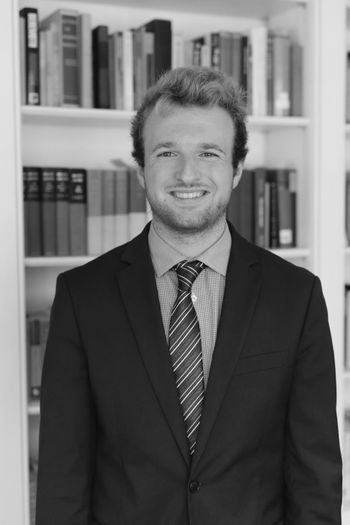OSU tells students not to use assume gender based on name, pronoun clues
Other recent OSU workshop trainings include discussions on inclusive hiring practices, inclusive citations, and microagressions.
'We're trying to eliminate the need to assume or at least the feeling that we need to assume.'
Over the past several months, Ohio State University’s Office of Diversity, Equity, and Inclusion has provided free workshops related to inclusivity, transgender identifying people, inclusive language, pronouns, and gendered words.
On July 5, “The Language of Inclusion: Pronouns and Other Gendered Words,” was taught by Leo Taylor, who joined the DEI office in 2018 and is also a self-described “trans man” — a woman who identifies as a man.
Campus Reform attended the workshop virtually.
Taylor told attendees: “Gender-affirming language makes life better. Gender-affirming language reduces depression, anxiety, and suicidal thoughts, and even suicidal attempts.”
“And I’m not going to question a single word. If it has gender associated with it, it has the potential to be weaponized, it has the potential to be triggering,” Taylor added
[RELATED: ‘Handyman’ is sexist, university’s pronouns guide argues]
Taylor largely focused on the socialization around gender and pronouns: “We’ve been trained to make assumptions about gender through pronoun use.”
Taylor cautioned participants not to assume a person’s pronouns, while presenting a situation where someone incorrectly assumes a person’s name as a similar example.
“We don’t go up to someone and say, ‘Hey, you look like your name is Jenny. So I’m just gonna call you Jenny,’” Taylor said. “No, we don’t know a person’s name, so we don’t make it up. And names oftentimes signal gender.”
Taylor then discussed the tendency to assume a person’s gender identity based on name. “If you meet someone and their name is Leo, chances are you’re going to guess the person identifies as a man or masculine in some way,” Taylor stated.
“What I’m encouraging you to do,” Taylor continued, “is not [to] do that, to not make that assumption, to not use pronouns as a proxy for gender. In fact, not to use names as a proxy for gender. Let’s disassociate gender from these words, and then we can avoid some problems with misgendering folks and making spaces feel a little less inclusive.”
At one point, the topic of people who use multiple sets of pronouns came up. Taylor mentioned that some feel comfortable using different pronouns in different situations, such as speaking about oneself in the third person.
“I love it when I meet someone who uses multiple pronouns,” Taylor said. “It’s a little exercise for my brain.”
Another part of the workshop was dedicated to gendered nouns, that is, words that ascribe a gender, such as “policeman.”
“It is super easy to come up with alternatives,” Taylor said, as participants tried to come up with words to replace everyday language like mother and father. Taylor also mentioned someone who suggested “nibling” for nieces and nephews.
“We’re not trying to replace or eliminate those words,” Taylor argued. “We’re trying to eliminate the need to assume or at least the feeling that we need to assume.”
“This is about not knowing and not assuming,” Taylor said.
“The Language of Inclusion” is one of many courses the OSU DEI Office offers. Inclusive hiring practices, inclusive citations, and microaggressions are among other notable training subjects.
Campus Reform contacted all parties mentioned for comment. This story will be updated accordingly.

